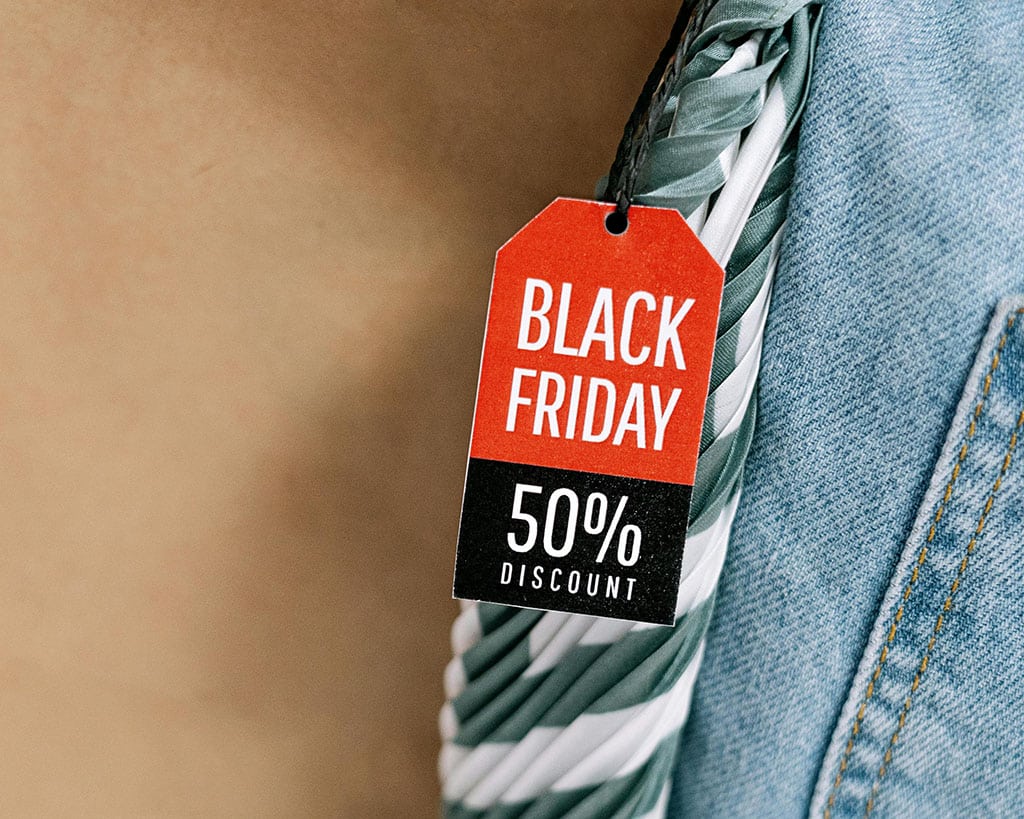Black Friday, a day that marks the unofficial beginning of the holiday shopping season. It is one of the largest and oldest sales and, over time, the term has become synonymous with incredible discounts, long lines, and eager shoppers. Yet, the story behind the day is an interesting blend of history, commerce, and tradition.
If you’ve ever seen the classic film ‘Life of Brian’, you’ll remember the scene that comically portrays the art of haggling, a practice as old as time. In the scene, Brian tries to purchase a fake beard from a market stall in Jerusalem, to avoid detection by the Romans. Despite Brian’s willingness to pay the original asking price, the vendor insists on haggling first and ends up purposely selling the beard for less money.
Whilst the scene humorously exaggerates the typical haggling experience, haggling is still a common practice in many parts of the world, particularly in open-air markets, bazaars, and even certain shopping centres. I was once wandering around a shopping centre in Saudi Arabia, where you could haggle over the price of every item in every store.
Haggling may no longer be a common practice in Portugal and many other Western countries due to fixed pricing and established retail norms, however, the love for a good deal still remains ingrained in our DNA. Whether it’s the thrill of snagging an item at a lower price, or the satisfaction of negotiating a better deal, the art of haggling has persisted throughout history, which is why we still get excited over great sales and promotions. Hence, the grand anticipation around Black Friday.

Throughout history, the adjective “black” has been linked with several devastating occurrences, from the Black Death that swept through Europe causing widespread death during the Middle Ages, all the way to Black Saturday, which refers to the more recent devastating bushfires in Australia. Therefore, it should come as no surprise that the term Black Friday also has a derisive origin.
The first time the term was ever recorded was in 1869 during a panic caused by two investors, who took advantage of their political ties and hatched a plan to manipulate the gold market. They worked together to buy as much of the nation’s gold as they could, hoping to create scarcity and drive up the price. However, the scheme began to unravel and, on September 24, 1869, the stock market collapsed and the day later became known as “Black Friday”.
Although that was the very first instance the term was recorded, the term as we know it today is believed to have originated in Philadelphia during the mid-20th century. Thanksgiving parades often included an appearance by Father Christmas, or Santa Claus as they call him in America, at the end of the parade. It is the equivalent of a post-credit teaser at the end of the film, as Christmas is the next major holiday following Thanksgiving. That is why the day marks the beginning of the Christmas shopping season and why shops begin to entice us with sales.
For this reason, Philadelphia’s city police department started using the term “Black Friday” to describe the chaotic and congested streets that resulted from the influx of shoppers and tourists the day after Thanksgiving. The heavy vehicular and pedestrian traffic transformed the city into a sea of people and vehicles, creating a kind of “black” mark upon the streets, hence “Black Friday”.
During this time, the police in Philadelphia had to work extra-long shifts in order to deal with the additional crowds and traffic. They also had to deal with shoplifters taking advantage of the chaos.

As the term gained national attention over the following decades, retailers tried to give a new meaning to the term, in an attempt to steer away from its derisive origin. As the new story goes, stores will usually go a whole year operating at a loss (in accounting, losses are recorded in red ink) to then making a profit (recorded in black ink) the day after Thanksgiving.
Whilst Thanksgiving is an American tradition that never really spread to Europe, Black Friday is now a global phenomenon. As the years went by, Black Friday became more structured, with retailers strategically planning and advertising special promotions to kick off the holiday shopping season.
With the advent of online shopping and the interconnectedness of the global economy, retailers started recognising the potential for increased sales, by extending their promotions to international customers.
Today, lots of shops hold special promotions throughout the whole month and even extend Black Friday sales during the weekend, which also includes Cyber Monday as well for extended online shopping. This year, I have already taken advantage of the Black Friday promotions to purchase some clear teeth aligners, but I’m sure I will also be tempted by other less useful stuff as well.
|| features@portugalresident.com
Jay works for a private charter airline, and is also a UX designer and aspiring author who enjoys learning about history and other cultures















